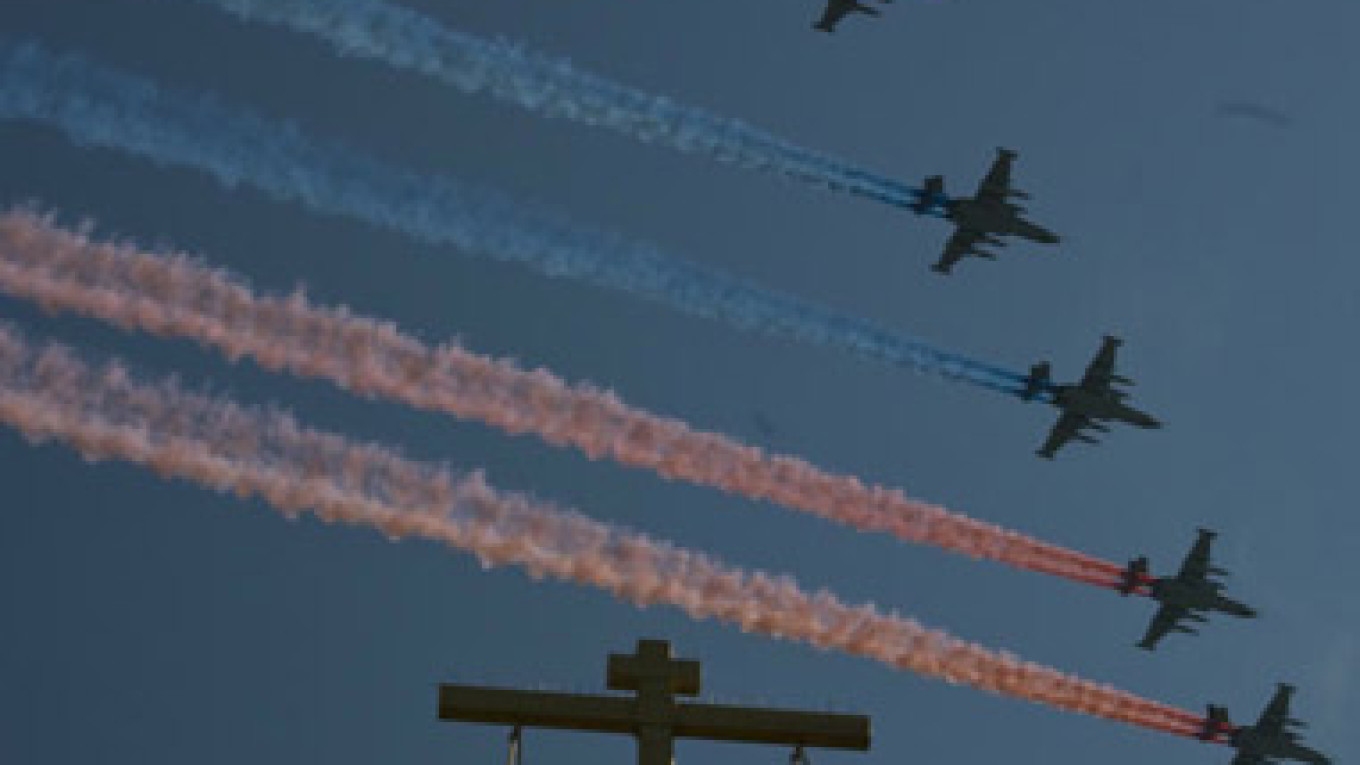During my time spent working and living in the former Soviet Union, one of the things that always made a powerful impression on me were the memorials and events from the Great Patriotic War. When I lived in Almaty, Kazakhstan, I always made sure to be in Panfilov Park on Victory Day to see the old veterans, with their medals and uniforms, still brimming with pride in the role they had played in history.
The truth is, I've long believed that most Americans have never understood the scale of suffering the Russian people endured. In the United States, the primary focus of the war in Europe has always been the Normandy landings and the slow progress forward to the Elbe River. All told, about 400,000 American soldiers died in World War II, a horrible tragedy in and of itself — yet nevertheless one that pales beside the losses suffered by the Soviets.
The numbers are simply stunning. Twenty-seven million Soviet citizens lost their lives. Meanwhile, of the approximately 9 million German soldiers killed in World War II, about 80 percent died at the hands of the Red Army. It is truly no exaggeration to say that it was the Soviets who broke the back of the Nazi war machine.
It is, therefore, with more than a touch of sadness that I've observed one Western leader after another declining to come to Moscow on May 9 for the 70th anniversary of Victory Day.
Certainly, Western leaders do face a dilemma. On the one hand, no one with even the slightest sense of history could fail to acknowledge the brutality endured by the people of the Soviet Union during World War II. On the other hand though, it is politically untenable for Western leaders to be seen as endorsing the way in which President Vladimir Putin frequently uses the historical memory of the fight against Nazism to justify Russia's proxy war in eastern Ukraine.
Luckily, there are a number of compromises Western leaders could take to honor the sacrifice of the Russian people during World War II without necessarily appearing onstage with Putin as the tanks roll by.
One step would be to follow the lead of German Chancellor Angela Merkel. In a recent conversation with Putin, the always rational Merkel told the Russian president that while she would be skipping the Victory Day parade on May 9, she would appear with Putin in Moscow on May 10 to lay a wreath at the Tomb of the Unknown Soldier at the Kremlin wall.
Germany will always possess a special historical responsibility to acknowledge the crimes of Nazism, and Merkel's choice is the right one. It would be nice to see other Western leaders do the same thing.
The other point that Western leaders should consider is that the historical memory of the Great Patriotic War is still deeply ingrained in the psyches of the Russian people. While the West may find Putin's authoritarianism distasteful, it should still be possible to honor the sacrifices of the Russian people while still avoiding the appearance of endorsing the Russian position on Ukraine.
One way to do this is to skip the parade, but go to memorials or museums that honor the suffering of the Russian people instead. For example, visiting the Museum of the Great Patriotic War in Moscow would be a low-key but symbolic way to acknowledge what the residents of that city endured. The Russian people have long memories, and the West should acknowledge what their ancestors endured.
Josh Cohen is a former USAID project officer involved in managing economic reform projects in the former Soviet Union. He contributes to a number of foreign policy-focused media outlets and tweets at? @jkc_in_dc
A Message from The Moscow Times:
Dear readers,
We are facing unprecedented challenges. Russia's Prosecutor General's Office has designated The Moscow Times as an "undesirable" organization, criminalizing our work and putting our staff at risk of prosecution. This follows our earlier unjust labeling as a "foreign agent."
These actions are direct attempts to silence independent journalism in Russia. The authorities claim our work "discredits the decisions of the Russian leadership." We see things differently: we strive to provide accurate, unbiased reporting on Russia.
We, the journalists of The Moscow Times, refuse to be silenced. But to continue our work, we need your help.
Your support, no matter how small, makes a world of difference. If you can, please support us monthly starting from just $2. It's quick to set up, and every contribution makes a significant impact.
By supporting The Moscow Times, you're defending open, independent journalism in the face of repression. Thank you for standing with us.
Remind me later.


